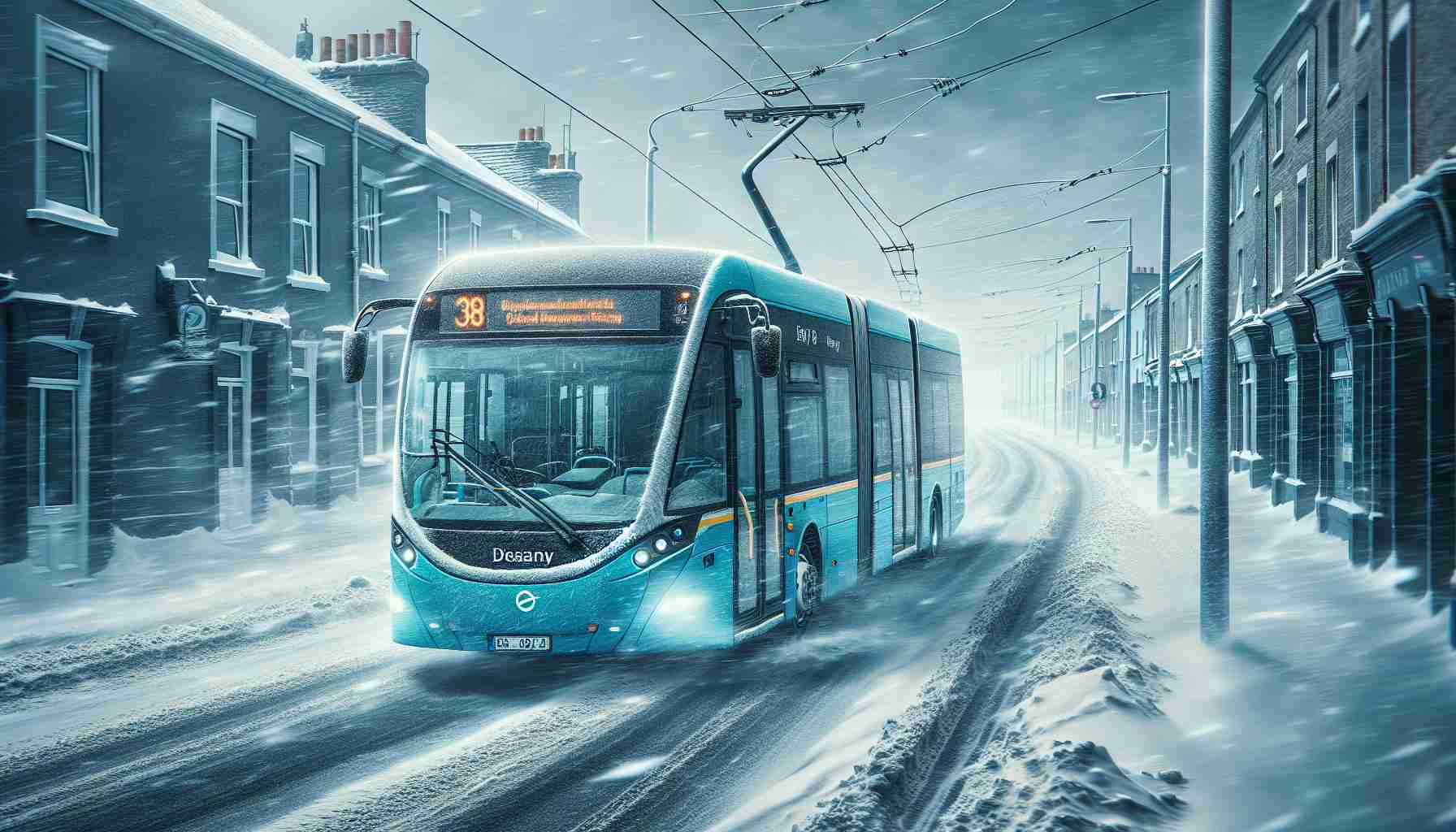While the Irish government is pushing for green energy and electromobility, there are controversies surrounding the operation of the new electric buses. Reports suggest that as the temperature drops, the number of cancelled routes increases, and passengers complain about the cold inside the vehicles. Are these issues related to the improper functioning of electric buses or are they simply inevitable weather-related limitations?
Bus Éireann, an Irish transport company, acknowledges that the temperature drop affects the performance of electric batteries and the range of the vehicles. As a result, some routes had to be cancelled. However, the company assures that they are currently analyzing how to optimize the management and efficiency of the buses to minimize these impacts.
Similar to other buses of this type operating in the UK, the temperature inside Irish electric buses is maintained at a constant level. Although the temperature settings can be adjusted, such changes can negatively impact the range of the vehicle and the service delivery.
Bus Éireann also admits that currently electric vehicles are generally more expensive than their diesel or petrol counterparts. This is an important argument used by opponents of the Minister for Transport Eamon Ryan’s green plan to challenge the profitability of such investment.
It is also mentioned that the batteries of electric buses lose efficiency due to winter weather conditions, resulting in a shortened range of the vehicles and the need for frequent battery replacements. Some estimates indicate that the cost of such replacements can reach up to €100,000.
However, it is important to note that electromobility technology is constantly evolving. The current problems may just be a stage in the improvement of electric buses. It is worthwhile to continue research on optimizing battery performance, increasing vehicle range in challenging conditions, and reducing operating costs.
Decisions regarding mobility and environmental protection should be made holistically, considering both the benefits and limitations of new technologies. Introducing electric buses can have a positive impact on emission reduction, but other options should also be considered, such as using vegetable oil as an alternative to fossil fuels.
It is crucial to achieve a balance between sustainable development and efficient use of public resources. Collaboration between the public sector, vehicle manufacturers, and scientists will be key in achieving a successful transformation towards electric mobility.
FAQ:
Q1: Why are new electric bus routes being cancelled in Ireland?
A1: The temperature drop affects the performance of electric batteries and the range of the vehicles, leading to the cancellation of some routes.
Q2: Is the temperature inside Irish electric buses regulated?
A2: Yes, the temperature inside these buses is maintained at a constant level. However, adjusting the temperature settings can negatively impact the vehicle’s range and service delivery.
Q3: Why are electric buses more expensive than diesel or petrol buses?
A3: Currently, electric vehicles are generally more expensive than their diesel or petrol counterparts.
Q4: Do the batteries of electric buses lose efficiency in winter conditions?
A4: Yes, winter weather conditions can result in a shortened range of the vehicles and the need for frequent battery replacements, which can be costly.
Q5: Is there hope for improvement in the performance and range of electric buses in the future?
A5: Yes, electromobility technology is constantly evolving, so the current issues may just be a stage in the improvement of electric buses. Research on optimizing battery performance, increasing vehicle range, and reducing costs is ongoing.
Q6: What other options should be considered in terms of mobility and environmental protection?
A6: While electric buses can have a positive impact on emission reduction, other options should also be considered, such as using vegetable oil as an alternative to fossil fuels.
Defined terms:
1. Bus Éireann – an Irish transport company.
2. Electric engine – an engine powered by electric energy.
3. Vehicle range – the distance a vehicle can travel on a single battery charge.
4. Fossil fuels – substances such as coal, natural gas, and petroleum that are extracted from the Earth and used for energy production.
Suggested related links:
1. Bus Éireann – official website of the Irish transport company Bus Éireann.
2. Ministry of Transport, Construction, and Maritime Economy – official website of the Polish ministry responsible for transport, construction, and maritime economy.
3. Public transportation – Wikipedia article on public transportation.
The source of the article is from the blog exofeed.nl
